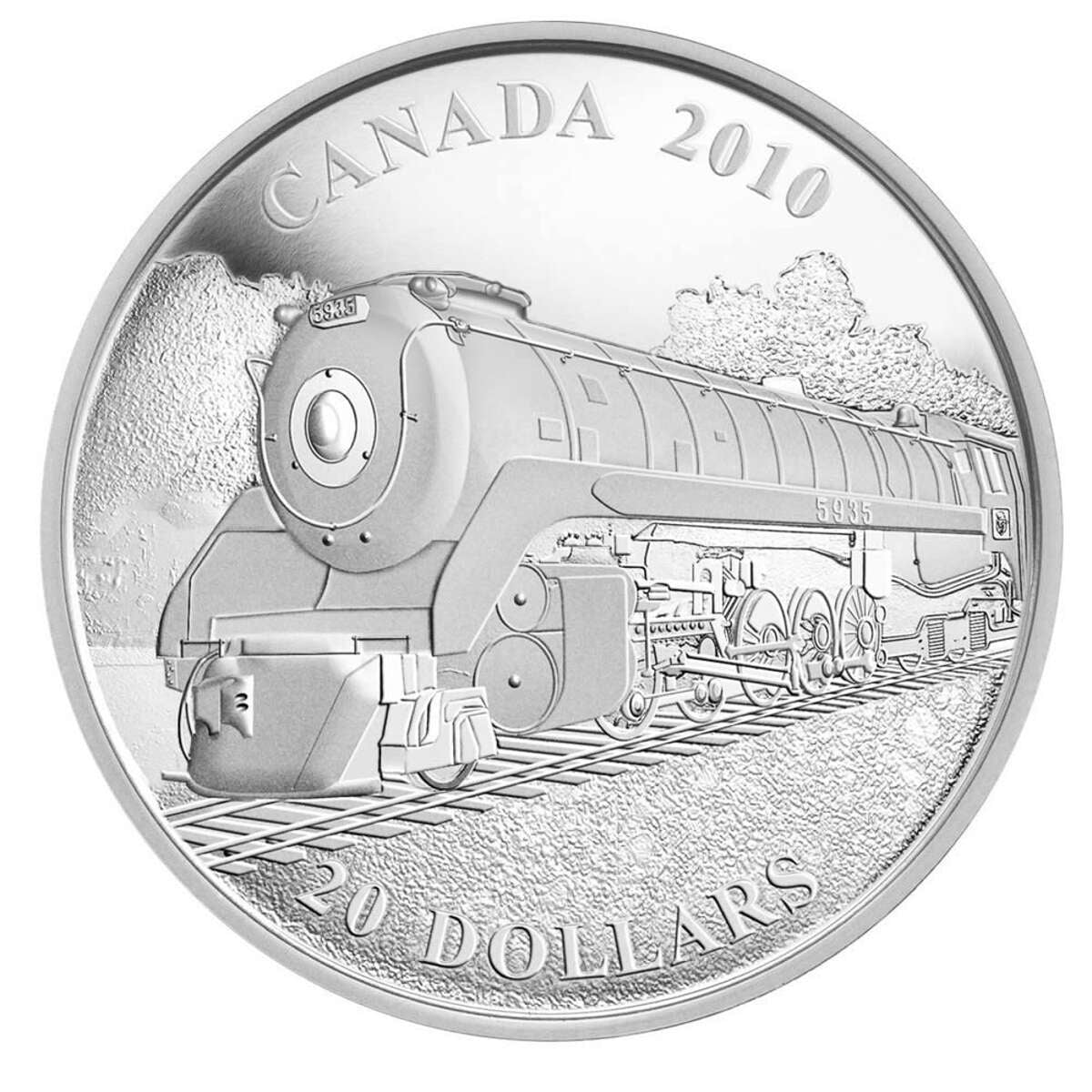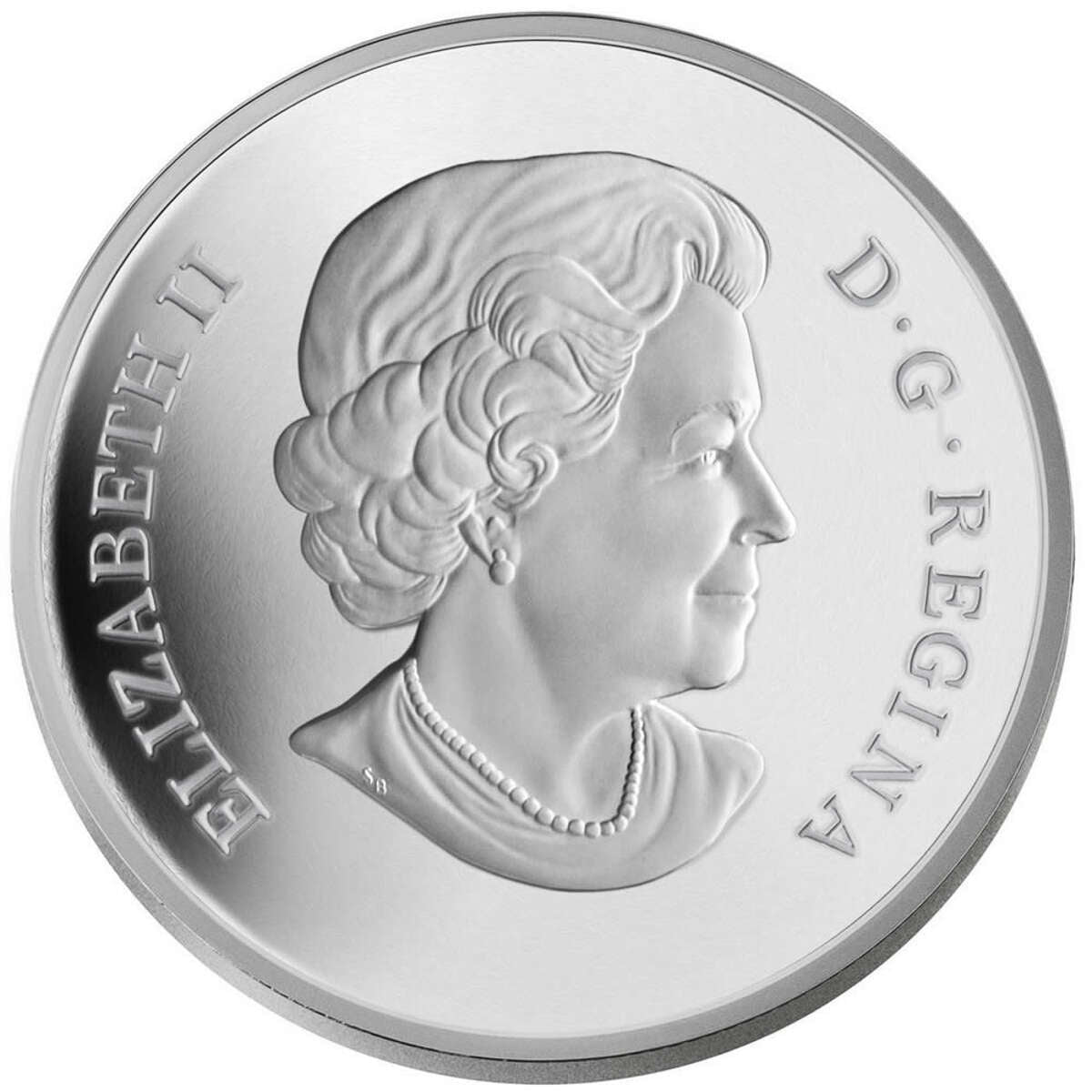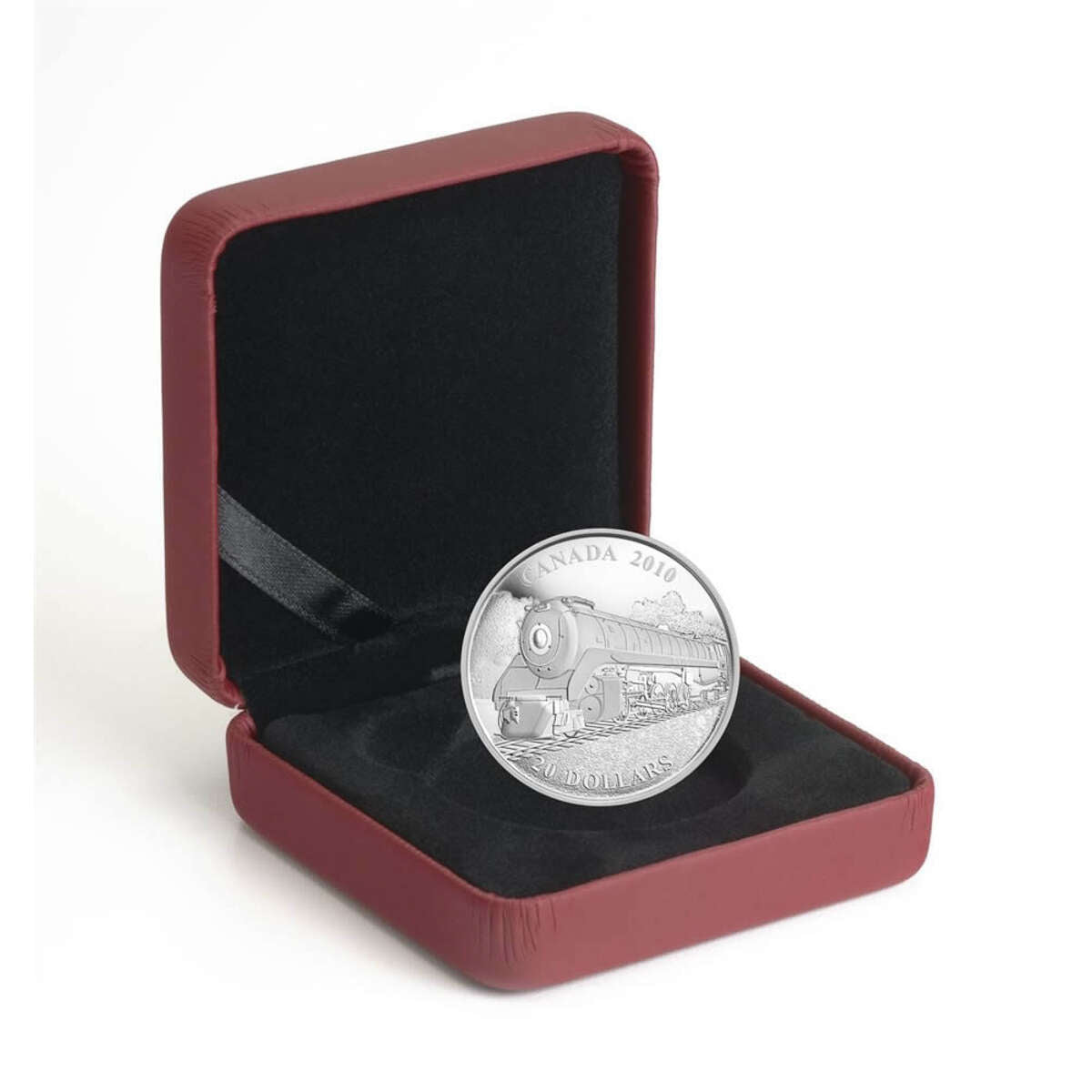Description
The 2010 $20 issue in the popular Great Canadian Locomotives Series pays tribute to the Selkirk—a locomotive that embodied ingenuity and determination in railway engineering as it provided travellers with the first—and spectacular—route through Canada’s impenetrable mountains. Mintage is limited to 10,000 coins. HST/GST exempt.
The Design:
This 99.99% pure silver coin celebrates Canada’s rich railroading heritage by bringing its powerful “mountaineering” locomotive into the spotlight. Its name “Selkirk” is engraved along the coin’s edge and its design is a highly collectible example of traditional engraving—a unique must-have for train enthusiasts and numismatists alike!
The sleek lines of engine 5935, one of two surviving locomotives from the last generation of Selkirks introduced in 1949—on display in Saint-Constant (Quebec).
The Selkirk:
From the moment the decision was made to build a railway across Canada, the mountains on the western part of the continent have stood as a towering challenge to laying tracks and travelling along them.
In 1929, the Montreal Locomotive Works built a new series of massive 2-10-4 engines for Canadian Pacific Railway to handle the heavy grades between Calgary (Alberta) and Revelstoke (British Columbia). Named for the Selkirk Mountains that they crossed, these non-articulated locomotives tackled the Spiral Tunnels, the Field Hill and the Connaught Tunnel; marvels of railway engineering that continue to astound to this day.
The Selkirks carried freight and passengers. They burned oil rather than coal to reduce their weight and to eliminate the sparks from coal-burning engines that could potentially ignite the heavily forested route.
A total 36 locomotives were built; the 1929 T1-a’s (Nos. 5900 to 5919); the 1938 T1-b’s (Nos. 5920 to 5929) that were lighter with increased steam pressure; and the 1949 T1-c’s (Nos. 5930 to 5935) with two cross-compound air compressors to recharge the all-important air brakes faster.
With the arrival of diesel locomotives in the early 1950’s, the Selkirks began serving other routes in Alberta and Saskatchewan. They were taken out of service in 1959 and only two engines were preserved; no. 5931 is in Calgary’s Heritage Park (Alberta) and no. 5935 is at Exporail in Saint-Constant (Quebec). While handsome in appearance, these later, more streamlined models do not have the bulkier, powerhouse appearance of the original T1-a locomotives.





